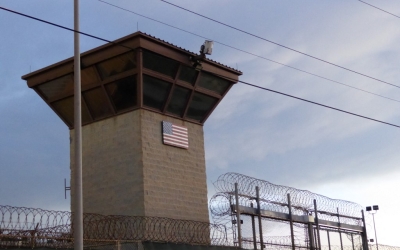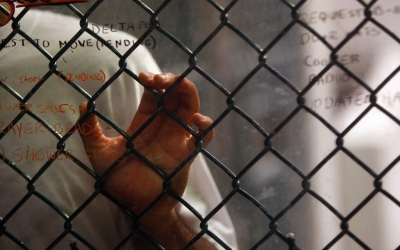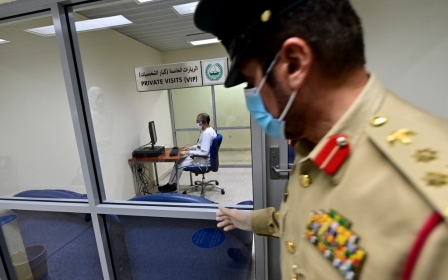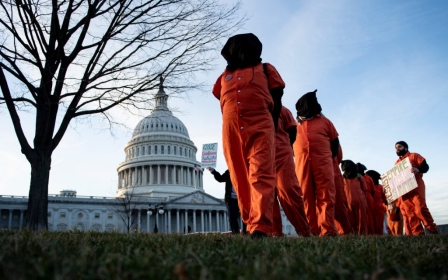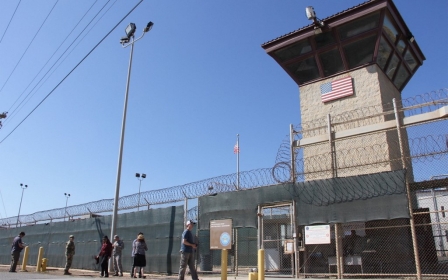Justice Department pressed to stop defending Guantanamo detention
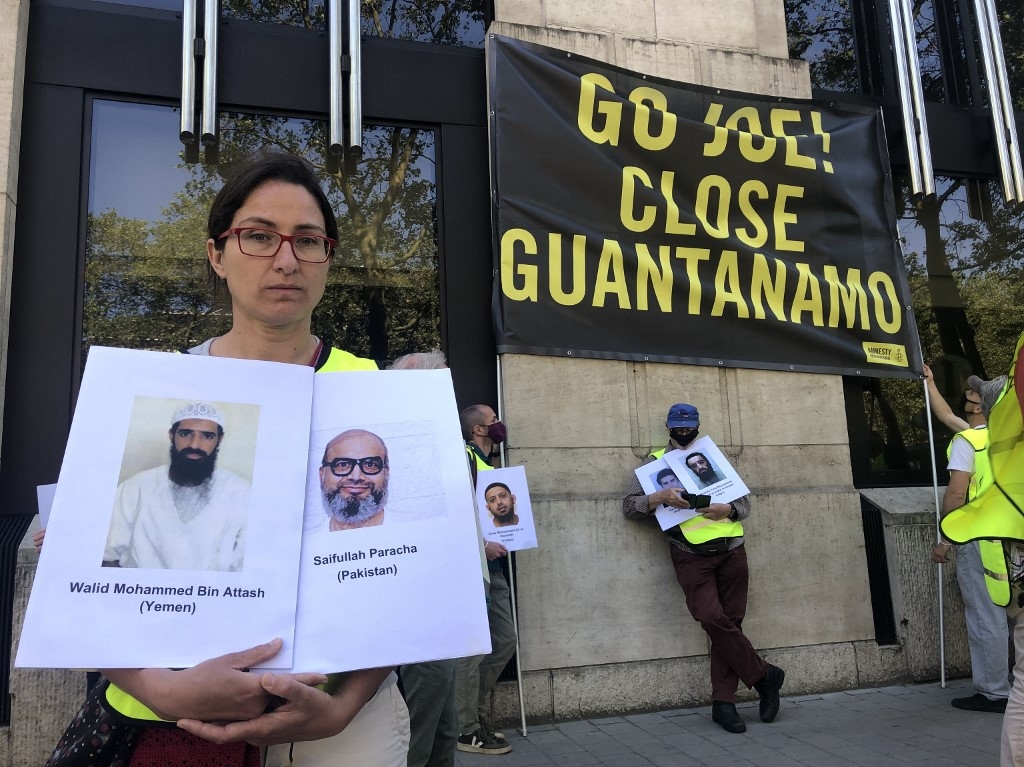
The chairman of the US Senate Judiciary Committee has asked the Justice Department to stop defending Washington's indefinite detention of prisoners at Guantanamo Bay ahead of a deadline that could have major implications for the camp's war court.
Senator Dick Durbin, in a letter to Attorney General Merrick Garland, asked the department to reconsider its position in defence of the military prison, and to ensure that any detentions at the prison camp "reflect the values of our nation".
'Every day that the prison remains open, its existence calls into question our commitment to human rights and the rule of law'
- Senator Dick Durbin, Senate Judiciary chairman
Of the 40 men being held at Guantanamo Bay, only nine have had charges levied against them, two of whom have already been convicted. For those who are being actively charged, the question of whether military commission courts should continue or if transfers to US federal courts should be permitted, still stands.
Last year, a three-judge panel on the DC Circuit Court of Appeals rejected a legal challenge from one of the detainees, ruling that Guantanamo's prisoners do not have due process rights under the Constitution.
The full DC Circuit is now reviewing the ruling, with oral arguments scheduled for 30 September. The Department of Justice faces a Friday night deadline to file a brief staking out its position in the case.
Durbin urged Garland on Wednesday to use the opportunity to reverse the justice department's position on the facility.
'Antithetical to the ideals of liberty'
"It is well past time for the Department to reconsider its approach to the applicability of the basic safeguards of due process to the men who remain imprisoned without charge or trial at Guantanamo, as well as other positions that help perpetuate this moral stain on our nation," Durbin wrote.
Durbin called the indefinite detention of those being held at the camp "antithetical to the ideals of liberty that the United States of America was founded upon".
"Every day that the prison remains open, its existence calls into question our commitment to human rights and the rule of law," Durbin wrote in his letter.
"The Department’s legal positions should reflect our nation's commitment to liberty and the rule of law, recognizing that our nation is strongest when it adheres to its core values," the Senator continued.
"Legal positions or arguments that may have once seemed justified to some in the aftermath of 9/11 must be viewed in light of current circumstances," he wrote. "As we approach the 20th anniversary of those attacks and the withdrawal of US forces in Afghanistan, the Department should revisit its positions and arguments regarding the continued authority to detain men without charge or trial - and without due process - at Guantanamo."
The Justice Department did not respond to Middle East Eye's request for comment by the time of this article's publication.
Heated debates within Biden camp
While US President Joe Biden has vowed to close Guantanamo Bay before he leaves office, thus far any such efforts have been kept quiet.
Extending Obama-era policy toward the prison camp, the Biden administration has restarted prisoner transfers to home or third party countries, encouraging the review board that was essentially shuttered during the Trump administration to clear for release those not deemed to be security threats. So far 11 of the 40 men remaining at Guantanamo are awaiting such transfers.
On Friday, the New York Times reported that the Biden administration's legal team is divided over whether the government should support Gitmo inmates' rights to due process rights under the Constitution.
The case seeking to answer that question revolves around Abdulsalam al-Hela, a 53-year-old man from Yemen who has been held without charge or trial since 2004.
Citing anonymous sources "familiar with internal deliberations", the newspaper said Biden's justice department has been locked in heated debates for weeks over the case.
Some Department officials who have spent years under administrations of both parties defending Guantanamo detention policies in court are wary of taking a position that could make it harder to win such cases, the Times wrote. Meanwhile others have argued that not clearly defending detainees' rights to due process would clash with the administration’s values.
The Justice Department weighed in on Hela's case under the Trump administration, arguing to an appeals court panel that he had no due process rights.
If it is found that Guantanamo prisoners do have rights to due process, then defence attorneys would have greater opportunities to ask courts to intervene over the conditions of detainees' continued imprisonment. It could also have major implications over what kind of evidence would be used in trials, given that Gitmo defence attornies have long argued that evidence obtained via torture should be connsidered inadmissable.
Middle East Eye propose une couverture et une analyse indépendantes et incomparables du Moyen-Orient, de l’Afrique du Nord et d’autres régions du monde. Pour en savoir plus sur la reprise de ce contenu et les frais qui s’appliquent, veuillez remplir ce formulaire [en anglais]. Pour en savoir plus sur MEE, cliquez ici [en anglais].


